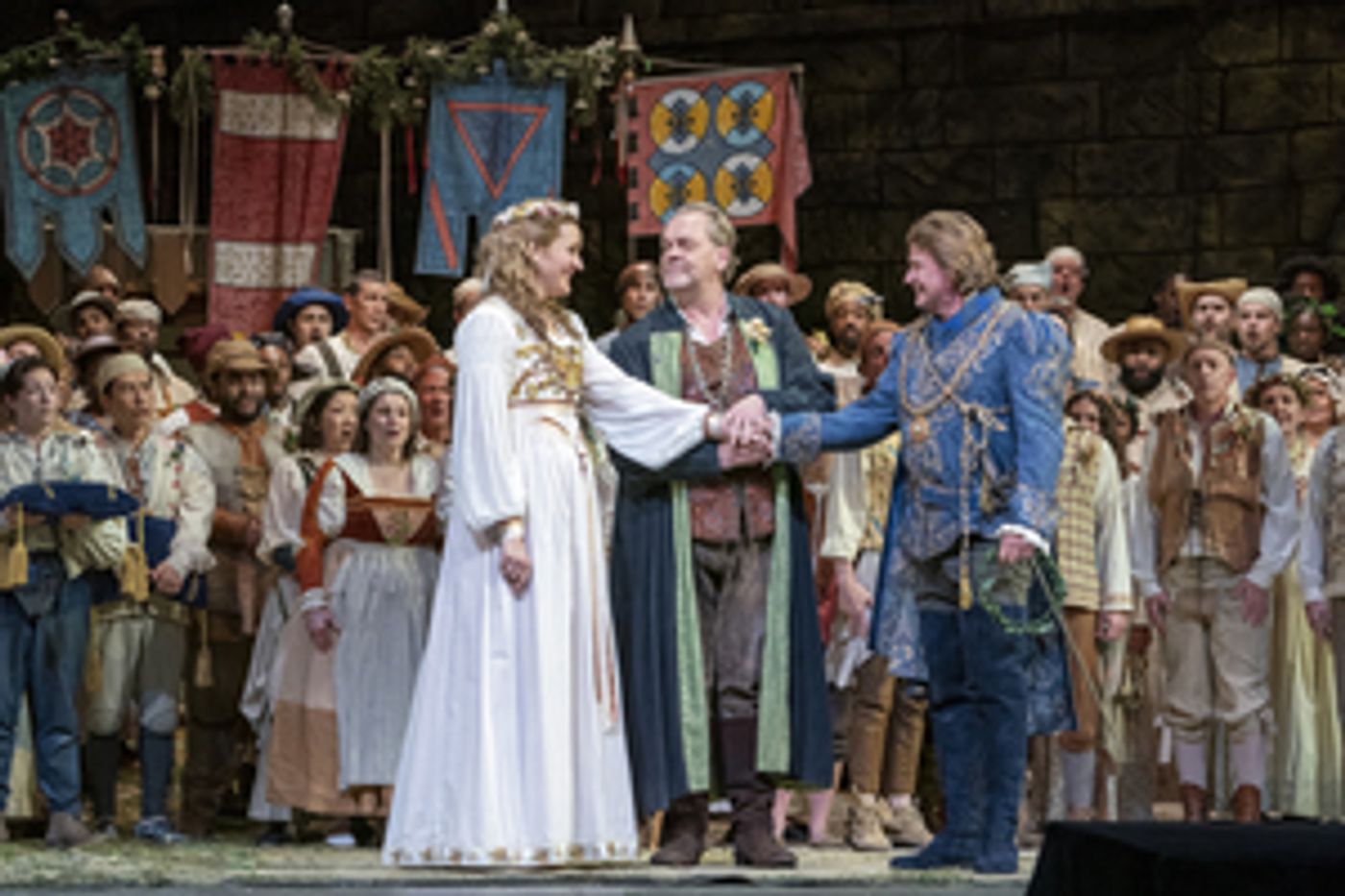Review: DIE MEISTERSINGER VON NÜRNBERG at the Metropolitan Opera
For the first time in almost seven years, the Metropolitan Opera has revived Wagner's DIE MEISTERSINGER VON NURNBERG.

Considered by many to be Wagner's masterpiece, today's matinee performance gave credence to that opinion. The production is that of Otto Schenk with scenery by Gunther Schneider-Siemssen, and costumes by Rolf Langenfass.
One needs patience to make it through the opera's great length, but the effort is well worth it. The story is that of the knight Walther Von Stolzing who,while staying in the town of Nuremberg, falls in love with Eva Pogner, daughter of one of the town elders.
Her father is holding a song contest, the prize being his daughter's hand in marriage should she love the victor. The winner, however, must be a mastersinger, a status usually achieved only after many years of study. Hans Sachs, a cobbler and mastersinger, helps Walther achieve his goal and in doing so proves to be the hero of the piece, despite his advanced years.
The town clerk, Beckmesser, is the thorn in Walther's side and impedes the young knight's efforts. All of these characters are well-delineated, both musically and dramatically by the composer, in a plethora of gorgeous music.
As stated above, the production, which premiered in the early 1990's, is traditional, to me the only way to stage this work. This is not an opera that cries for updating, as it is set in medieval times and the characters are indeed of that period. Act one takes place in St. Katherine's Church, the second on a street in Nuremberg, and the third, split into two scenes, in Sachs' shop and on a meadow where the song contest take place.
A number of principal performers were singing their roles for the first time at the Met, namely Lise Davidsen as Eva, Klaus Florian Vogt as Walther, and Georg Zeppenfeld as Veit Pogner, Eva's father. Ms. Davidsen is a relatively young soprano, who is making quite a name for herself worldwide. She made her Met debut in PIQUE DAME two years ago and was to sing Fidelio last season but, due to the pandemic, did not. Her voice is beautiful and quite large and it is no exaggeration to say that she dominated all the ensembles in which she participated. She is to return later in the season in ELEKTRA and ARIADNE AUF NAXOS.
Klaus Florian Vogt has sung at the Met prior to this year. He has a strong tenor voice, while not stentorian, and is easily heard over the heavy orchestration. On hearing him in a live setting, I feel his voice is placed higher than the standard tenor voice, and requires some getting used to. He certainly cuts a dashing figure on stage and is well-paired with Ms. Davidsen.
Georg Zeppenfeld has a rich, voluminous bass and should appear at the Met more often. His sonorous voice would certainly be welcome here in much of the Wagner repertory he sings around the world.
Michael Volle, who sang Hans Sachs during the last revival, continues to amaze with his resonant, burnished tone. He seems to live the role to the fullest.
Johannes Martin Kranzle, also a veteran of this production, brought humor and a tinge of sadness to the role of the outwitted Beckmesser. It was entirely believable that he was competing for Eva's hand although we all know from the beginning he was going to lose out.
Paul Appleby and Claudia Mahnke played David and Magdalene with expertise. The master singers who filled out the reminder of the ensemble were all fine.
Maestro Antonio Pappano, absent from the Met for decades, brought a firm hand to the score and paced it well. He was rewarded with a tremendous and well-deserved ovation. The orchestra sounded excited to be back in place after the long hiatus. The chorus, which plays a major part in the proceedings was nothing short of splendid. The complex finales of acts one and two were perfect.
In all, a wonderful way to welcome the Met back to Lincoln Center after the longest hiatus in its history.
Photo: Richard Termine / Met Opera
Reader Reviews
Videos

